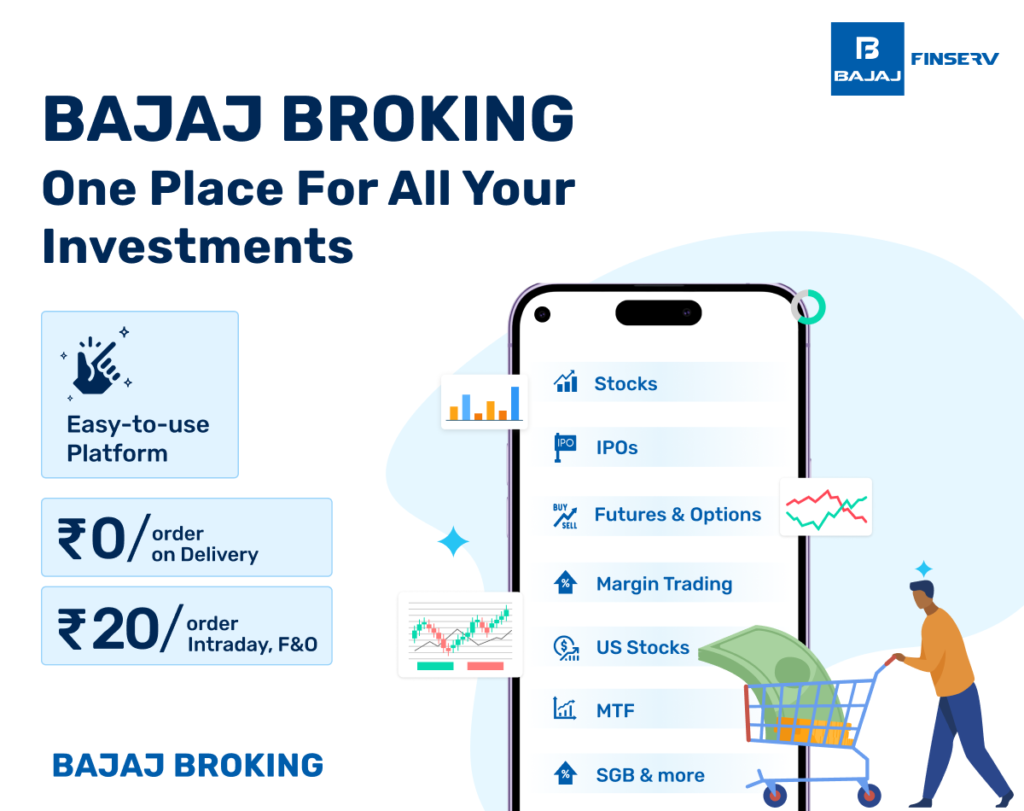
Learn about IPOs, read up on important terms, and see how you can apply for upcoming IPOs with this handy guide.
Imagine being among the first to invest in a company poised for growth. You get early bird access to everything from a premium listing to its quarterly and yearly growth potential, dividends, share buybacks, and more.
This is precisely what an Initial Public Offering (IPO) offers to investors. In the Indian stock market, IPOs have become a significant event, providing a gateway for private companies to go public and for investors to participate in a company’s growth story right from the beginning. (Be mindful that there are chances that a company may list at a premium or at a discount depending on a number of factors).
From understanding the basics to making informed decisions, Bajaj Broking ensures you are well-equipped to take advantage of opportunities in the form of upcoming IPOs. This guide will walk you through the essentials of IPOs, why they matter, and how you can be part of a company’s exciting journey.
What is an IPO?
An IPO, or Initial Public Offering, is the process through which a private company offers its shares to the public for the first time. This transition allows the company to raise substantial capital needed for expansion, debt repayment, or other significant investments. Bajaj Broking keeps you updated with the latest upcoming IPOs to help you plan your investments effectively.
Why are IPOs Important for Investors?
1. Early Investment Opportunities: Investing in an IPO allows investors to purchase shares at a potentially lower price before the company grows and the stock value increases
2. Portfolio Diversification: IPOs provide investors with the chance to diversify their portfolios with shares from new and emerging companies
3. Potential for High Returns: If the company performs well post-IPO, investors can see substantial returns on their initial investment
4. Insight into Growing Markets: IPOs often involve companies in expanding industries, offering investors an opportunity to invest in sectors with high growth potential
Types of IPOs
There are two common types of IPOs:
1. Fixed Price Offering
In a fixed price offering, the share price is predetermined and remains fixed throughout the IPO process. All investors purchase shares at the same issue price, regardless of demand or market conditions. This simpler method is suitable for smaller companies or those with a stable valuation.
2. Book Building Offering
In a book-building IPO, the share price is determined through a bidding process within a specified price band. The final price is based on demand generated during the book-building period. This flexible method is better suited for larger companies or those with fluctuating valuations.
Important Terms Regarding IPOs
1. Prospectus: This document provides comprehensive details about the company, including its financial health, business model, and the risks involved. Reading the prospectus is crucial before making an investment decision.
It usually includes:
– DRHP (Draft Red Herring Prospectus): This is a preliminary document submitted by the company to SEBI (Securities and Exchange Board of India) for approval. It contains detailed information about the company’s operations, financials, and future plans but does not mention the number of shares or price.
– RHP (Red Herring Prospectus): This is the final version of the DRHP and includes details about the number of shares and the price band. The RHP is released a few days before the IPO opens for subscription.
2. Price Band: The range within which investors can bid for shares. It indicates the minimum and maximum price at which shares can be purchased
3. Issue Size: The total number of shares being offered in the IPO
4. Opening and Closing Dates: The timeframe during which investors can apply for the IPO shares
Pro Tip: Reading a company’s RHP is important to understand a company’s strengths and weaknesses. Bajaj Broking’s IPO research reports can give you these valuable insights in an easy-to-understand format.
How to Apply for an IPO?
Applying for an upcoming IPO is a quick and straightforward process that can be completed in just a few clicks.
Head over to the Bajaj Broking website or download the Bajaj Broking trading app from the Android or Apple app store to begin:
• Login to your Bajaj Broking trading account
• Choose ‘IPO’ from the menu
• See ‘Open IPOs’ and tap/click on ‘Apply’
• Enter the quantity (lot)
• Enter your UPI ID to block the requisite amount
• Submit your IPO application
Did you know Bajaj Broking offers a seamless and user-friendly platform for applying to IPOs, ensuring you never miss out on investment opportunities?
IPO Allotment Basis
After the IPO application period ends, the company, along with its lead managers, finalizes the allotment of shares. In cases of oversubscription, shares may be allotted to the retail investor through a computerised process. Successful applicants will receive shares in their Demat accounts, while funds for unsuccessful applications will be unblocked or refunded.
Listing and Trading
Post-allotment, the company gets listed on the stock exchange. The listing date is when the shares begin trading, and the share price can fluctuate based on market demand and supply. This is a critical phase where investors can see the immediate market reaction to the IPO.
Conclusion
IPOs are an exciting entry point for investors into the Indian stock market. By understanding the basics of IPOs, how to apply, and the process of allotment and trading, investors can make informed decisions and potentially benefit from the growth of newly public companies.
Bajaj Broking offers a streamlined and efficient process to help you navigate the IPO landscape effectively. Always stay informed and conduct thorough research to maximize your investment potential.